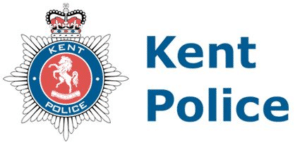Who is responsible for Safeguarding in the School?
At the Sallygate School everyone is responsible for ensuring high standards of pupil safety and welfare.
The Designated Safeguarding Lead (DSL) is the one responsible for all matters related to safeguarding in the school. At our school this person is Robert Lloyd (Deputy Head teacher).
Our SENCO is Louise Buckingham-Dudley.
What if I have a concern regarding a child?
Concerns are recorded, raised immediately and then discussed with the whole Safeguarding and Welfare Team to identify the appropriate support/action. Every week, the team meet and review all concerns that are currently ongoing and discuss new referrals from staff and parents.
If you have any concerns about the welfare of any child in school, then please do not hesitate to come in and speak to any member of the team or you can email Louise Buckingham-Dudley here
Online Safety
Online grooming is a concern for many parents and carers when considering how to safeguard children and young persons online. A foundation has been set up by the mother of Breck who tragically lost his life through online grooming. The foundation offers advice to parents and carers on how to identify the signs of online grooming and ways to protect children and young people online.
There is also this resource from the BBC with videos clips about Breck’s story and online gaming:
In addition, there’s the following very sad video showing how Breck was groomed through the game and ultimately lured to the flat where he was murdered. Parent advisory the following video is rated 15 and is a harrowing account of Brecks tragic story and is not suitable for viewing for under 15’s.

Our children are growing up in an increasingly online world and the risks that they will come across and have to deal with are very different to the risks that we would have learnt to deal with. Parents can, rightly, be very concerned about online behaviour and conduct and so we have provided some factsheets below about the most common risks that children will face.
Further reading.
Here is a snapshot of books parents and carers of younger children can use to further the conversation about online safety and teach children about how to be kind and respectful to others online, protect their online reputations (and those of others) and to seek out positive opportunities to create, engage and share online.

Operation Encompass


At the Sallygate School we are working in partnership with Kent Police and Children’s Services to identify and provide appropriate support to pupils who have experienced domestic violence in their household; this scheme is called Operation Encompass.
The purpose of Operation Encompass is to safeguard and support children and young people who have been involved in or witness to a domestic abuse incident. Domestic abuse impacts on children in a number of ways. Children are at increased risk of physical injury during an incident, either by accident or because they attempt to intervene. Even when not directly injured, children are greatly distressed by witnessing the physical and emotional suffering of a parent.
Encompass has been created to highlight this situation. It is the implementation of key partnership working between the police and schools. The aim of sharing information with local schools is to allow ‘Key Adults’ the opportunity of engaging with the child and to provide access to support that allows them to remain in a safe but secure familiar environment.
In order to achieve this, the Multi-Agency Safeguarding Hub will share police information of all domestic incidents where one of our pupils has been present, with the Designated Safeguarding Lead(s) (DSL). On receipt of any information, the DSL will decide on the appropriate support the child requires, this should be covert dependent on the needs and wishes of the child. All information sharing and resulting actions will be undertaken in accordance with Kent Police and MASH Encompass Protocol Data Sharing Agreement. We will record this information and store this information in accordance with the record keeping procedures outlined in this policy.
The purpose and procedures in Operation Encompass have been shared with all parents and governors. Further information can be found by clicking on the following link: https://www.operationencompass.org
At the Sallygate School our Designated Safeguarding Leads are Robert Lloyd (Deputy Head teacher), Tracey Watson (Deputy Pupil Support Manager), Toni Litten (School Family Liaison Manager) and Angela Jupe (School Liaison Officer).
Prevent
What is the Prevent strategy?
Prevent is a government strategy designed to stop people becoming terrorists or supporting terrorist or extremist causes. The Prevent strategy covers all types of terrorism and extremism, including political and religious extremism.
How does the Prevent strategy apply to schools?
All schools (as well as other organisations) have a duty to safeguard children from radicalisation and extremism. This means schools have a responsibility to protect children from extremist and violent views, in the same way we protect them from drugs or gang violence. Importantly, schools can provide a safe place for pupils to discuss these issues so that they better understand how to protect themselves.
What does this mean in practice?
Different schools will carry out the Prevent duty in different ways, depending on the age of the children and the needs of the community. Many of the things we already do in school to help children become positive, happy members of society also contribute to the Prevent strategy for example:
- Exploring other cultures and religions and promoting diversity
- Challenging prejudices and racist comments
- Developing critical thinking skills and a strong, positive self-identity
- Promoting the spiritual, moral, social and cultural development of pupils, as well as British values such as democracy
- Protecting children from the risk of radicalisation, such as using filters on the internet or vetting visitors who come into school
Frequently Asked Questions
How does Prevent relate to British values?
Schools have been required to promote British values since 2014, and this will continue to be part of the response to the Prevent strategy.
British values include:
- Democracy
- The rule of law
- Individual liberty and mutual respect
- Tolerance of different faiths and beliefs
Isn’t my child too young to learn about extremism?
The Prevent strategy is not just about discussing extremism itself, which may not be appropriate for younger children. It is also about teaching children values such as tolerance and mutual respect. Schools should make sure any discussions are suitable for the age and maturity of the children involved.
Is extremism really a risk in our area?
Extremism can take many forms, including political, religious and ideological extremism. Some of these may be a bigger threat in our area than others.
The intention is to give children the skills to protect them from any extremist views they may encounter, now or later in their lives.
Key Terms
Extremism – vocal or active opposition to fundamental British values such as democracy, the rule of law and tolerance of different faiths and beliefs
Ideology – a set of beliefs
Terrorism – an action that endangers or causes serious violence to a person/people, causes serious damage to property, or seriously interferes or disrupts an electronic system, and is intended to advance a political, religious or ideological cause
Radicalisation – the process by which a person comes to support extremism and terrorism
If you have any questions or concerns about the Prevent strategy and what it means for your child, please do not hesitate to contact the school.
External sources
The following sources may also be useful for further information:
